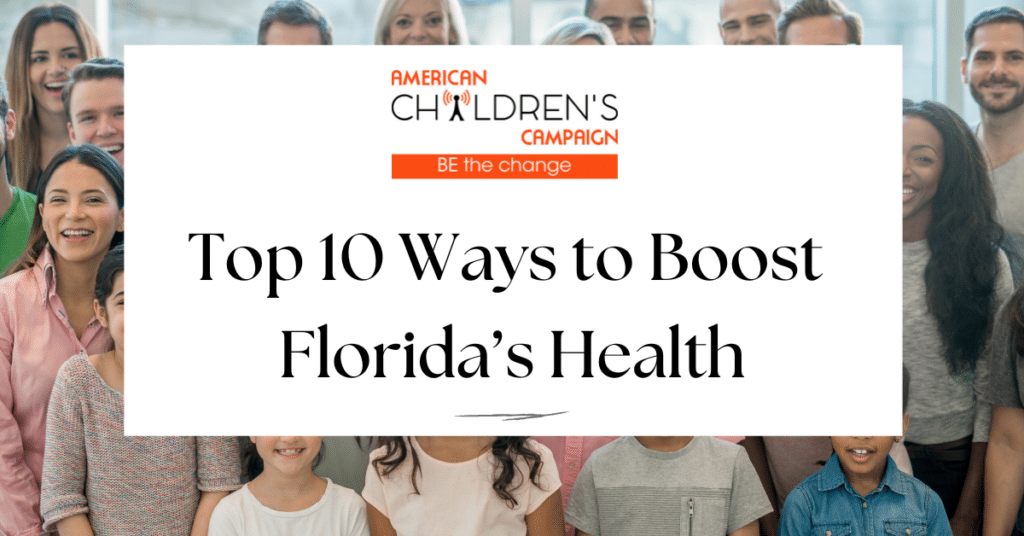
A two-tier system exists: Those who can get dental care and those who can’t. 65 of Florida’s 67 counties have dental shortage areas, and the number of Floridians living in dental deserts grows every day.

Over 7.1 million Floridians live in Dental Health Professional Shortage Areas. The ability for children to visit a dentist in Florida over the past 12 months is worst in the country.

This has not occurred in oral health due to protectionist pushback from organized dentistry. A key part of the solution is new legislation to license mid-level professionals called “Dental Therapists” who are similar to a physician’s assistant. Florida can join 14 other U.S. states and 50 countries that have expanded access to quality dental care through dental therapy.

Over 15% of Florida children (more than 200,000) have reported the prevalence of a major depressive episode (MDE). Of those children, nearly two out of three did not receive treatment of any kind, and only 26% (52,000) received ongoing treatment. The infusion of mental health dollars into public schools after the Parkland tragedy has provided a few improvements, but overall integration of services with community mental health is inconsistent and large gaps remain. Routing these funds through the Managing Entities would yield better results. It is estimated that about 63% of youth receiving substance abuse treatment also had mental health needs.

Florida’s suicide rate has remained steadily above the national average since 2015 and is now the twelfth leading cause of fatalities. 3,325 lives were lost in 2021 demonstrating the continued need to make suicide prevention a priority.

Overall health care access for children, adults and pregnant women would improve with consumer education, Medicaid expansion and rate improvements but previous Florida policymakers said it would not happen on their watch. From purely a financial perspective this results in dire consequences with billions spent in costly ER visits, repeated hospitalizations and acute care, and the enormous expense of premature births.

Making an impact on maternal health starts with recognizing the need to address mental, oral and physical health starting early and through childbearing age.

The chronic lack of equitable access to health care and other support services portends negative consequences. Black women are three times more likely to die from a pregnancy-related cause than White women.

The back-end costs of not reaching every pregnant woman in need should shift to front-end prevention, consistent care, and intervention as appropriate.

Florida’s Early Steps program successfully serves children at-risk of developmental delays at a time to make the best impact. Early Steps serves about half of the total children referred to the program signaling a strong need for increased capacity.
Other parts of this series:
Part 1 – Juvenile Justice & Child Welfare Concerns
